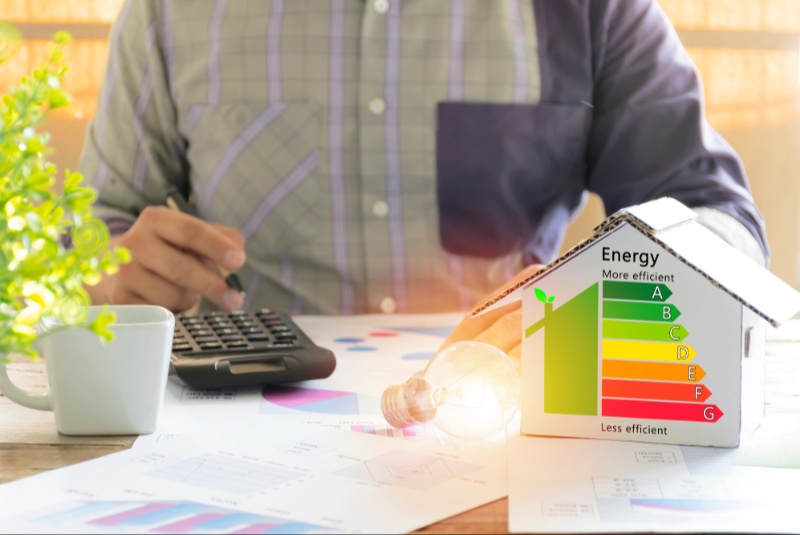Home energy audits have emerged as invaluable tools for homeowners seeking to enhance the energy efficiency of their properties while simultaneously reducing utility costs. While the primary objective of these audits is to pinpoint areas for energy-saving improvements, they also offer significant financial advantages beyond merely cutting energy bills. In this comprehensive article, we'll delve into the various financial benefits of conducting a home energy audit and how it can translate into long-term savings and increased property value.
Understanding Home Energy Audits
- Assessment of Energy Usage: A home energy audit entails a thorough evaluation of a residence's energy consumption, efficiency levels, and potential areas for enhancement. Skilled professionals scrutinize factors like insulation levels, HVAC systems, appliances, lighting, and air leakage to ascertain where energy is being utilized inefficiently.
- Identification of Efficiency Opportunities: Drawing upon the findings of the audit, experts provide recommendations for bolstering energy efficiency and curbing energy wastage. These suggestions may involve upgrading to energy-efficient appliances, sealing air leaks, bolstering insulation, installing programmable thermostats, or transitioning to high-efficiency HVAC systems.
Financial Benefits of Home Energy Audits
- Reduced Utility Bills: The most immediate financial boon of a home energy audit is the potential for substantial savings on utility bills. By implementing the recommended energy-saving measures, homeowners can diminish their energy consumption and drive down their monthly expenses on heating, cooling, and electricity.
- Increased Property Value: Investing in energy-efficient upgrades can augment the value of a home and render it more appealing to prospective buyers. Given the growing preference for eco-friendly residences among environmentally conscious consumers, energy-efficient homes often command higher sale prices and attract swifter buyer interest in the real estate market.
- Tax Incentives and Rebates: Numerous governmental bodies and utility companies extend tax incentives, rebates, or other financial perks to homeowners who undertake energy-efficient enhancements. These incentives can offset the initial costs of energy-saving upgrades and furnish additional financial gains for homeowners.
- Extended Lifespan of Equipment: Energy-efficient appliances and HVAC systems tend to boast longer lifespans and necessitate less frequent repairs and maintenance compared to their less efficient counterparts. By investing in energy-saving upgrades, homeowners can curtail their long-term maintenance and replacement expenses, thereby saving money on repairs and replacements over time.
- Improved Comfort and Health: Besides the financial advantages, energy-efficient upgrades can also enhance the comfort, health, and overall quality of life for homeowners and their families. Adequate insulation, air sealing, and HVAC systems help uphold consistent indoor temperatures, reduce drafts and cold spots, and enhance indoor air quality, fostering a more comfortable and healthier living environment.

Cost Considerations and Return on Investment
- Upfront Costs: While there may be initial expenses associated with conducting a home energy audit and implementing energy-saving upgrades, these investments can yield substantial returns in the form of long-term savings and augmented property value. Homeowners should factor in the potential return on investment when deliberating whether to pursue energy efficiency improvements.
- Financial Planning: Homeowners can integrate the cost of a home energy audit and energy-saving upgrades into their financial planning endeavors. By earmarking funds for these endeavors and weighing the potential savings and benefits, homeowners can make informed decisions about allocating their resources for maximum efficacy.
Additional Financial Benefits
- Insurance Premium Discounts: Some insurance companies offer discounts on homeowners' insurance premiums for properties that have undergone energy-efficient upgrades. By demonstrating a commitment to energy efficiency, homeowners may qualify for lower insurance rates, further enhancing their long-term savings.
- Resale Value Appreciation: Energy-efficient homes are increasingly sought after in the real estate market, as buyers prioritize sustainability and energy savings. By investing in energy-saving upgrades, homeowners can increase the resale value of their properties and potentially recoup their investment when selling their homes.
- Potential for Rental Income: Energy-efficient homes are also attractive to tenants, who may be willing to pay higher rents for properties with lower utility costs. By upgrading their properties to improve energy efficiency, homeowners can potentially generate additional rental income and enhance the overall profitability of their investment properties.
- Utility Incentive Programs: Many utility companies offer incentive programs to encourage homeowners to adopt energy-efficient practices. These programs may include cash rebates, discounts on energy-efficient appliances, or even subsidized installation costs for certain upgrades. By taking advantage of these programs, homeowners can offset the upfront costs of energy-saving improvements and accelerate their return on investment.
- Increased Property Marketability: Energy-efficient homes have become increasingly desirable in today's real estate market, as more buyers prioritize sustainability and long-term cost savings. Homes with energy-efficient features such as solar panels, energy-efficient appliances, and smart thermostats often command higher sale prices and attract more interested buyers. By investing in energy-saving upgrades and obtaining a home energy audit certification, homeowners can enhance the marketability of their properties and potentially sell their homes faster and at a higher price when the time comes.
Home energy audits offer myriad financial benefits for homeowners, encompassing reduced utility bills, heightened property value, tax incentives, extended equipment lifespans, improved comfort and health, insurance premium discounts, resale value appreciation, and potential for rental income. By investing in energy-efficient upgrades and adhering to the recommendations of a home energy audit, homeowners can economize on energy costs, bolster the value of their homes, and relish a more comfortable and sustainable living environment. Whether aiming to curtail monthly expenses, elevate the resale worth of their home, or diminish their carbon footprint, a home energy audit stands as a prudent investment that yields dividends in both the short and long term.




